The previous post ended with me installing Jest. To understand this post better, here’s the blueprint of the quiz generator I drew before writing tests. It contains all the expected inputs, output and data types.
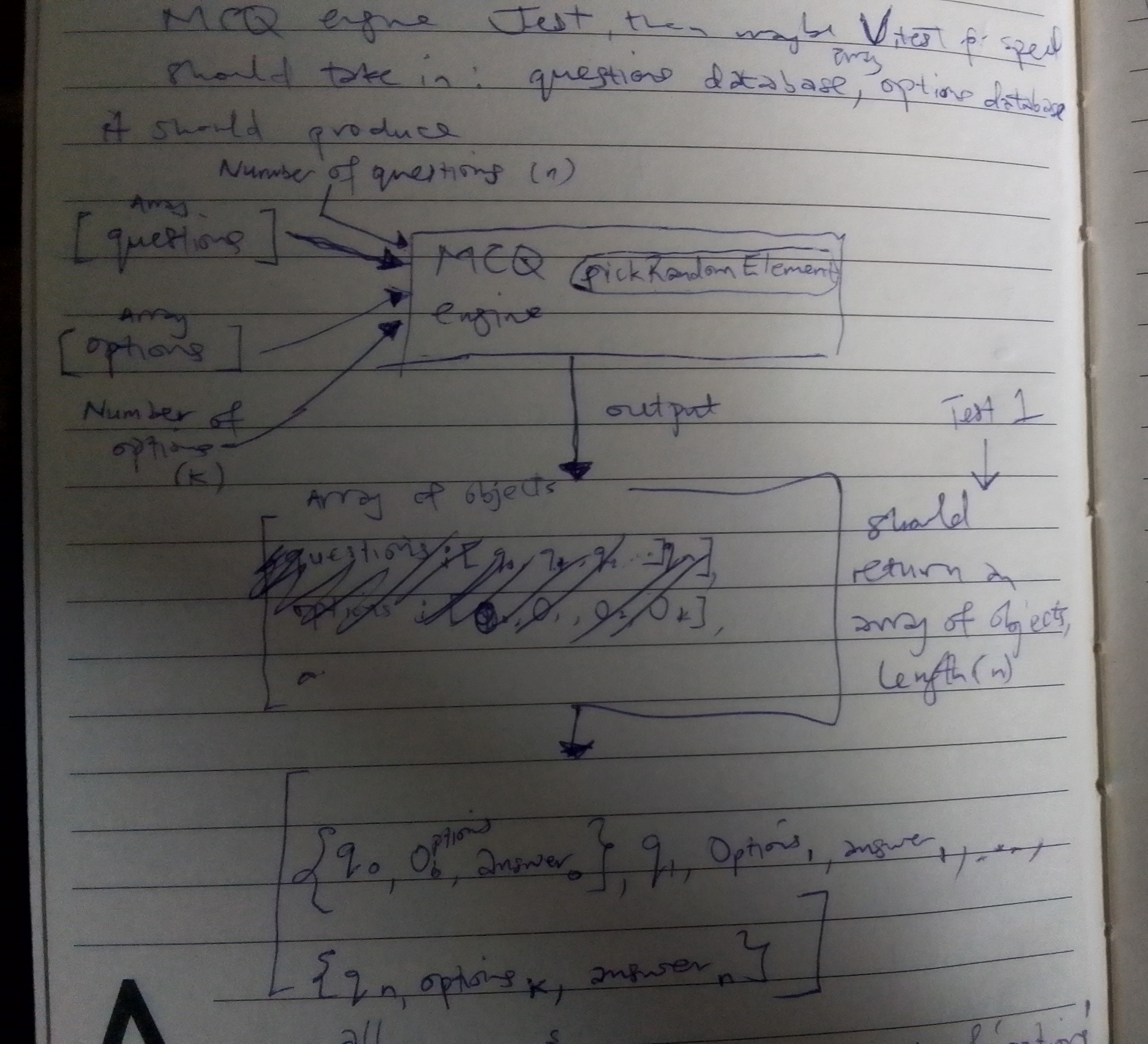
Inputs: questions, options, number of questions, number of questions
Output: An array of objects with length = number of questions. Each object contains a question, answer, and options array
I’ll admit that I forgot to look at the diagram when I started writing the tests. But that wasn’t the reason I ran into trouble. The first 3 tests I wrote passed; the fourth one passed too, but it caused the first 3 to fail. I remember someone describing this scenario as something you should avoid when unit testing. If newer tests fail, you’re not writing the tests correctly. So I went back to the diagram to see what I was getting wrong.
To be honest, I can’t remember exactly what caused the problem, but I wrote a note to myself that said “Incremental building blocks. Start with what is static”. I can conclude that I was writing tests for parts of the code that would change, so, I started afresh. Here’s how it looked:
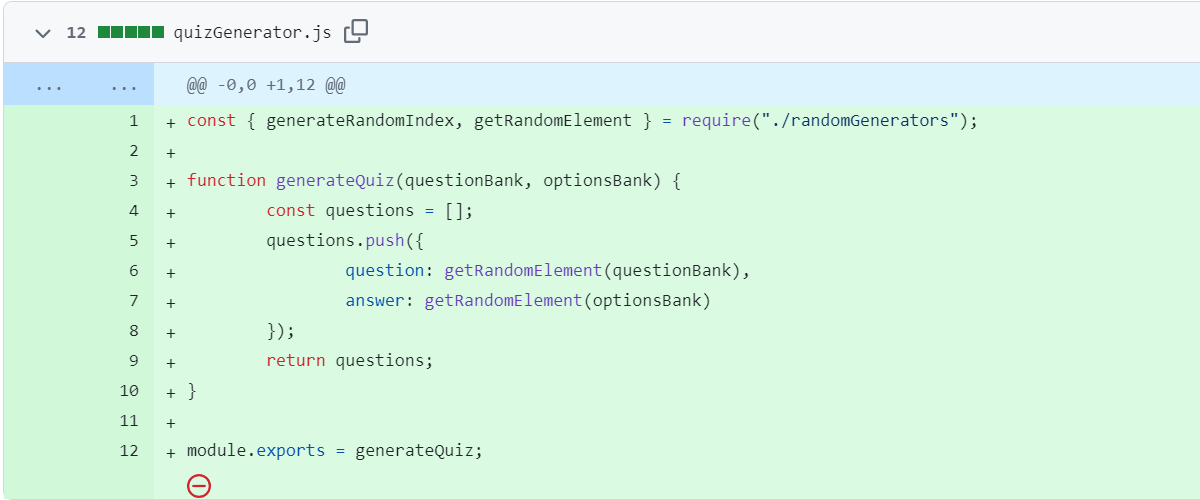 Implementation (I forgot to take screenshots from VS Code)
Implementation (I forgot to take screenshots from VS Code)
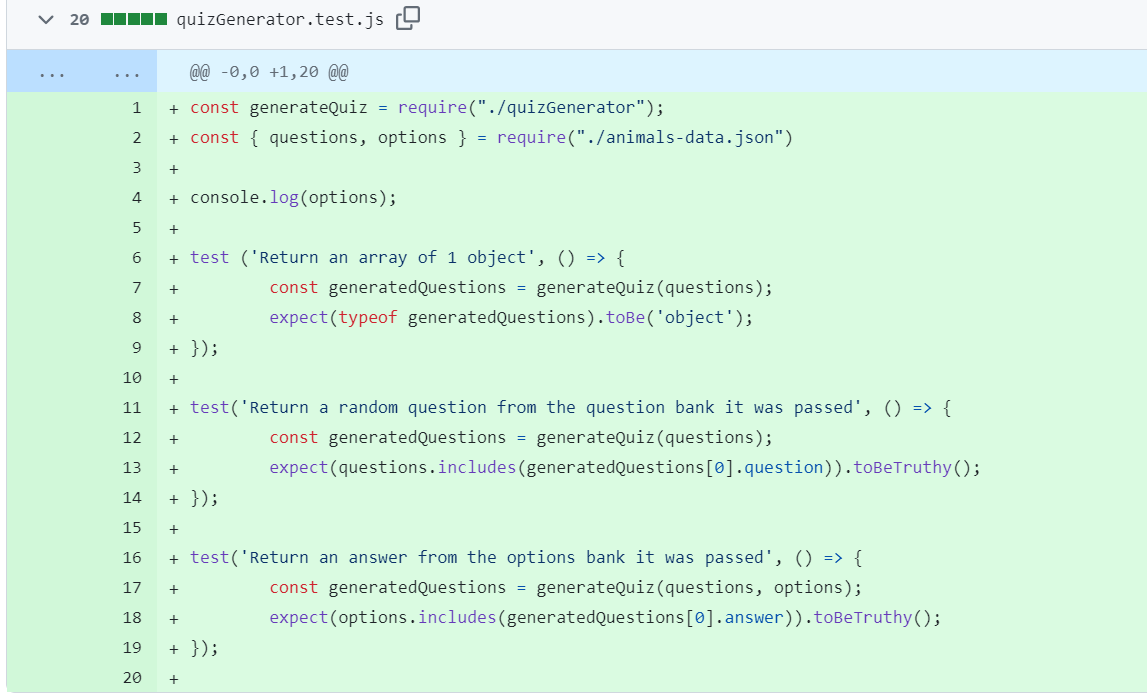 Test
Test
I ran into the same problem. But this time, I was testing very specific outputs from the function without checking the inputs. These failures told me that something was wrong with my mental model of unit testing.
Alhamdulillah, after staring at the diagram for a while and thinking deeply, it became clear that I was supposed to validate the inputs first, and not the output. I started from scratch, and this time, I was happy to see that the newer tests weren’t breaking the older ones.
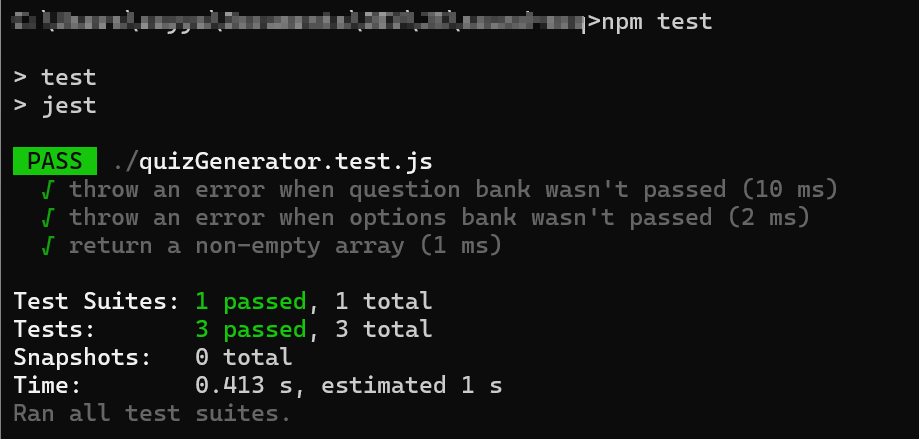
Here’s the implementation:
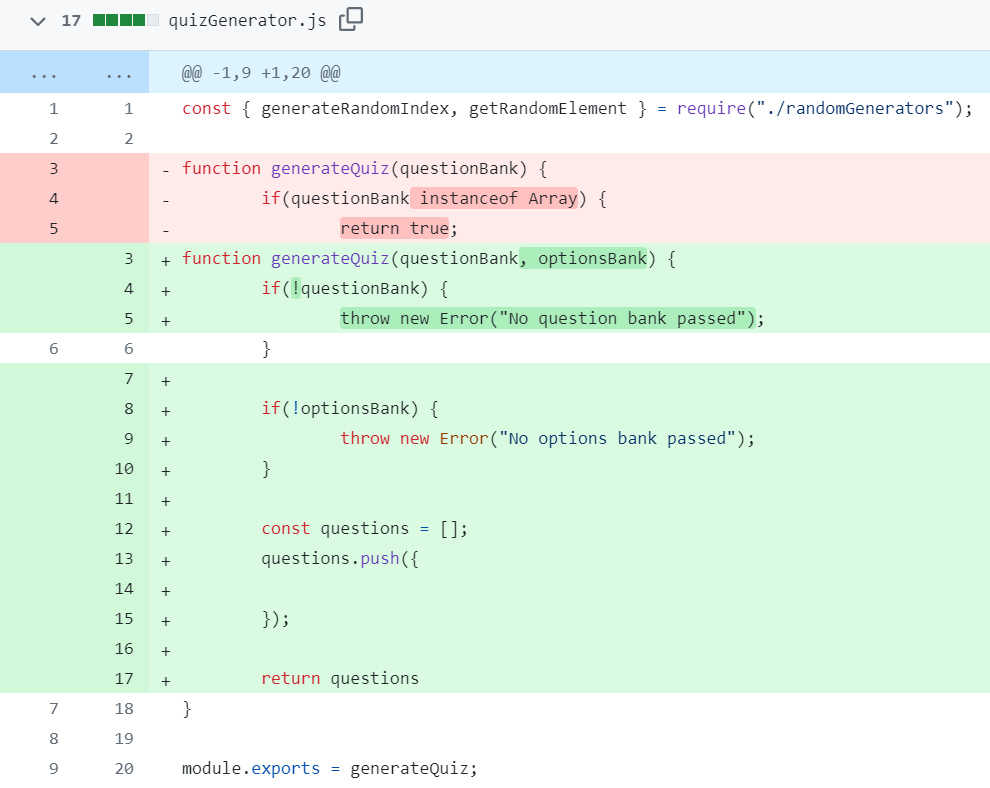
In the next post, I’ll cover more Jest-specific topics and incidents with JavaScript array functions, in shaa Allah.